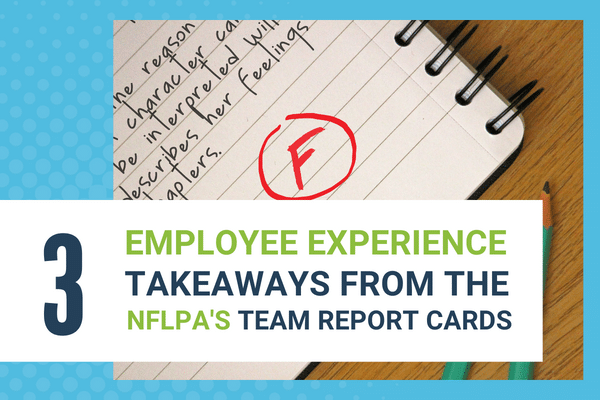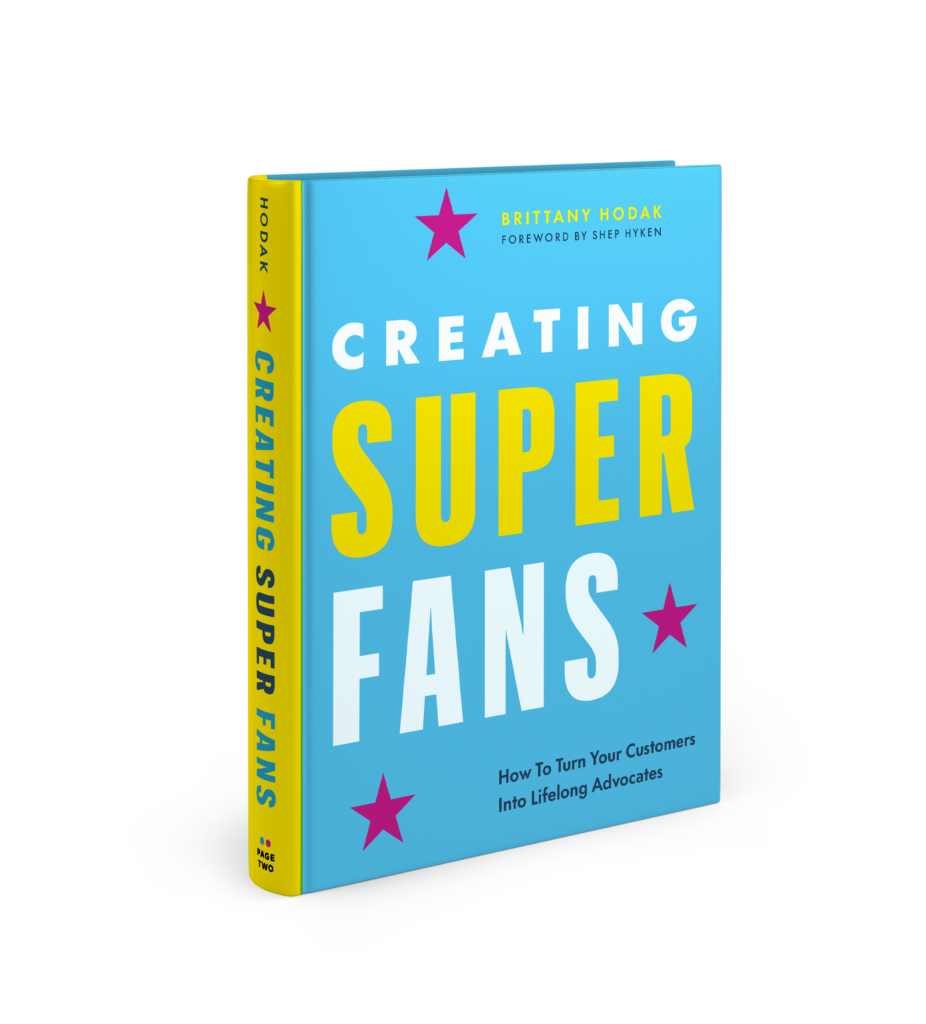It’s officially March, which means that the end of Q1 is rapidly approaching. Here’s your official reminder to collect employee feedback before the month ends — and then set a calendar reminder to do it again at the end of June!
Neglecting to collect employee feedback can have negative consequences for both the employees and the management as a whole. Without regular feedback, you cannot have an accurate understanding of how your team feels about their job responsibilities, company policies, or workplace environment. When you consistently ask your team for their honest evaluation, you can get ahead of blindspots and make improvements before issues fester.
If that reminder isn’t enough to make you prioritize employee feedback, maybe this will…
Last week, the NFL Player’s Association (NFLPA) published team report cards for the first time. More than 1,300 players participated in a survey that asked them to grade several aspects of their team experience on a scale of A+ to F-. Players rated the treatment of family members, nutrition, weight room, strength staff, training room, training staff, locker room and travel.
If your employees gave you a report card today that rated all of the different components of your employee experience, what do you think you’d get? Would you be surprised about the results, or do you have a general sense of how your employees feel about their experience? More importantly, would you be willing to have the grades published and compared against all of your competitors? 🤔
Anyone who’s ever built a team knows that reputation is even more important to potential employees than it is to customers. While customers give you their money, employees give you something far, far more valuable: their time and their talents. A better reputation makes it easier to recruit new prospects to join the team.
It’s no coincidence that the NFLPA published the report cards two weeks before the free agency period begins. On March 15th, unrestricted free agents are officially allowed to sign with new teams. Undoubtedly, players will think twice before signing a long-term deal with a club that received more F- grades than As and Bs.. 🫣
So, what were the biggest takeaways? Which teams did an endzone dance on Report Card Day, and which ones were totally blindsided? And more importantly, what can you do to ensure you don’t finish at the bottom of your metaphorical division?
Invest in the Development of Your Employees
The Washington Commanders came in last place overall (32nd), with three F- grades and one F across the eight categories. They performed the worst in the treatment of families, training room, locker room, and team travel.
Many players felt like ownership wasn’t willing to invest in facility upgrades, citing lack of space, poor shower drainage and water temperatures, and significant understaffing as common issues. (Remember when FedEx Field partially collapsed last year, nearly injuring opposing quarterback Jalen Hurts and several fans?!) Some players even refused to rehab at the Commanders’ facility due to the understaffed department. Without enough trainers and physical therapists, the players weren’t getting the attention they needed.
When you play for the 8th richest franchise and have the 32nd-ranked facility, it says something about ownership’s values. In a business where compensation and job security are directly tied to on-field performance, players must have the proper resources and environment to help them play at their best.
The Arizona Cardinals didn’t do much better: They finished in 31st place overall and got an F- for their weight room due to complaints of health and safety risks. Many athletes pointed to uneven floors and floorboards that are peeling up. They’re also the only team that charges its players for meals by deducting money from their paychecks. When your body is your asset, and management does not prioritize the strength room or nutrition, you’d probably feel like the team isn’t investing as much in you as you are sacrificing for them.
Your Play:
Make sure the expectations you set for your team align with the resources and training you’re able to provide.
Acknowledge Your Employees’ Families
The Jacksonville Jaguars finished 28th overall, and it’s not just because of the rat infestation they had. Players complained that their wives had to breastfeed their babies on the floor of the stadium’s public restrooms. The 27th ranked Bengals players also made the same complaint. Luckily, 95% of the Jaguars believe owner Shad Khan will make the necessary changes. Only 44% of the Bengals said the same of owner Mike Brown.
On the other hand, the top-ranked Minnesota Vikings had a great family area, including a daycare and post-game gathering place. The Houston Texans finished in 4th place overall, with one of their strongest areas being the travel philosophy. The players were especially grateful that they did not have to sleep away from their loved ones in team hotels the night before a home game. Many other teams require players to sleep in a hotel near their stadium.
Athletes, like all employees, want their managers to acknowledge that they’re more than just a member of your organization. They have families and lives outside of the workplace. When you acknowledge the commitment their families make, it makes their loyalty to the team stronger.
Your Play:
Your employees exist outside of their relationship with you. Demonstrate that you care about the people and the things they care about, and they’re much more likely to care about the people and the things you care about.
Bonuses and Perks Don’t Compensate for Poor Working Conditions
While the worst-rated teams, the Commanders and Cardinals, both had losing records during the 2022 season, no amount of winning can compensate for the lack of support. Players want more than just a competitive salary or playoff appearances. They want to know that their bosses care about them as human beings and they need the proper resources and training.
The Kansas City Chiefs, fresh off their second Super Bowl victory in four years, came in 29th place. Perhaps the most glaring issue for the champs is their training staff, which received a D-. Players called for “a more welcoming environment” and agreed that staff discouraged them from reporting injuries and didn’t get personalized care plans.
Your Play:
A Lombardi Trophy isn’t a magic wand for hostile working conditions. Similarly, a coffee machine or annual raise won’t cut it for your team members. Don’t lose great players because you’re focusing only on outcomes. Collect — and act on! — employee feedback during the season, not just when the final standings are in.
All employees want to feel valued, supported, and enabled to grow. Going forward, The NFLPA announced that they will survey members annually. They aim to help raise the standards across the league and share helpful information with free agents. If teams want to attract and retain the top talent in the league, they’ll have to consistently ask for feedback. They must ensure that athletes are happy with the overall team experience— just as you must do thanks to review sites like Glassdoor and Indeed.





